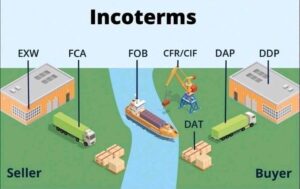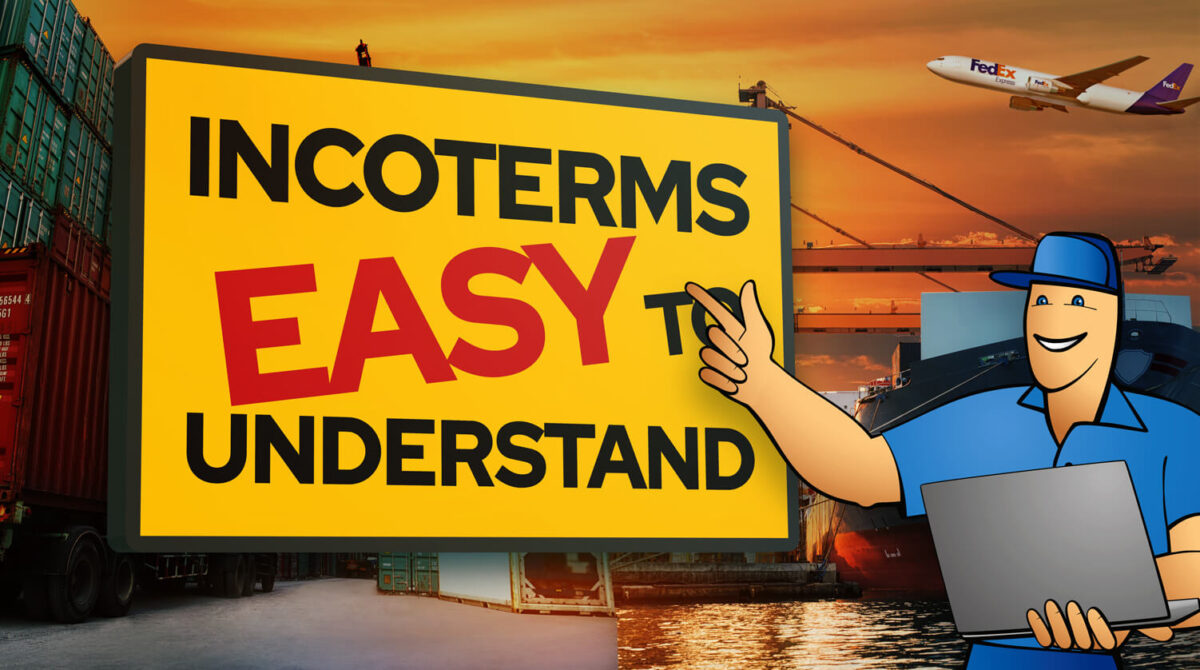When importing products from China, one small detail can have a big impact on your final costs and responsibilities: Incoterms.
Short for International Commercial Terms, Incoterms define who does what in an international transaction—who handles shipping, insurance, customs, and when the risk transfers from the seller to the buyer.
Yet, many businesses still misunderstand these terms, which can lead to unexpected costs, delays, or disputes. At Eurasia Consultis, we help European importers avoid these pitfalls by selecting the right Incoterm for each shipment. Here’s what you need to know.
What Are Incoterms?
Published by the International Chamber of Commerce (ICC), Incoterms are standardized trade terms used in contracts for the sale of goods. They outline the responsibilities of buyers and sellers for transporting goods.
There are 11 official Incoterms (as of the 2020 edition), grouped by mode of transport and level of responsibility.
Choosing the right one isn’t just a formality—it affects:
- Who pays for freight and insurance
- Who arranges customs clearance
- When the risk of damage transfers
- Your overall landed cost
The Most Common Incoterms (and What They Mean)
1. EXW (Ex Works)
The seller makes the goods available at their premises. The buyer bears all transport costs and risks from pickup onwards.
✅ Use if: You want full control of logistics.
❌ Risk: Many hidden costs, especially for inexperienced importers.
2. FOB (Free on Board)
The seller delivers the goods on board the vessel at the port of departure. The buyer takes over from there.
✅ Use if: You’re shipping by sea and want shared responsibility.
❌ Risk: Buyer must handle ocean freight, insurance, and import clearance.
3. CIF (Cost, Insurance & Freight)
The seller pays for transportation and insurance to the destination port, but the risk transfers once the goods are on board the ship.
✅ Use if: You want the seller to handle most logistics up to your port.
❌ Risk: Seller controls freight and insurance terms.
4. DAP (Delivered at Place)
The seller handles everything up to the final delivery location, excluding import duties.
✅ Use if: You want door-to-door delivery without handling shipping.
❌ Risk: You still need to handle import clearance and taxes.
5. DDP (Delivered Duty Paid)
The seller handles everything—including customs clearance and import duties. You just receive the goods.
✅ Use if: You want zero hassle.
❌ Risk: Highest cost, and limited control over customs valuation.
Which Incoterm Is Right for You?
It depends on your experience, logistics capabilities, and risk tolerance.
| Profile | Suggested Incoterm |
| First-time importer | DDP or DAP |
| Experienced buyer with freight contacts | FOB |
| Looking for the lowest base cost | EXW |
| Prefer to outsource freight and insurance | CIF |
Also consider the country of import, type of goods, and port congestion. A flexible approach often works best—what’s ideal for one shipment may not be for another.

Common Mistakes to Avoid
- Assuming DDP always means “trouble-free”—customs surprises still happen.
- Using CIF for air shipments (CIF is meant for sea freight).
- Letting the supplier choose the freight forwarder without visibility.
- Failing to confirm Incoterms in writing on contracts and invoices.
Why It Matters More Than You Think
Choosing the wrong Incoterm can inflate your landed costs or expose you to risks you’re not prepared to manage. At Eurasia Consultis, we advise clients on the most strategic shipping terms—based on their business model, budget, and timeline.
Remember: Incoterms are not one-size-fits-all. Use them strategically to protect your bottom line.
Need Help Navigating Incoterms?
Whether you’re placing your first order or renegotiating contracts, Eurasia Consultis is here to help. We work directly with factories and freight partners in China to give you full clarity on cost, risk, and logistics—before your shipment even leaves the port.

